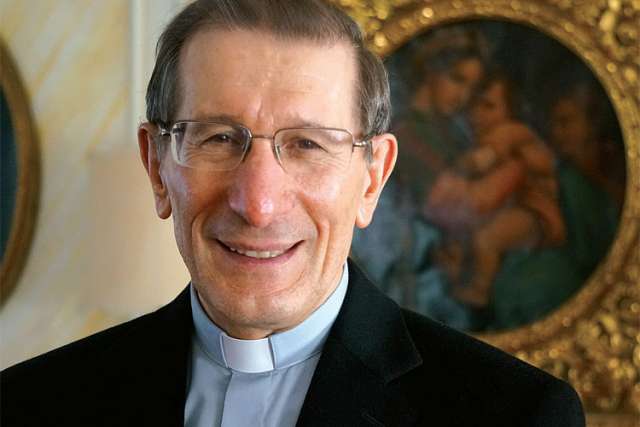After all, much has changed since Bonazzi’s first go round, when he served five months here before he was named nuncio to Haiti and made an archbishop. He need look no further than the Prime Minister’s seat, which in 1999, was occupied by Jean Chretien. Now it’s Stephen Harper and his Conservative Party leading the nation.
Bonazzi has only been in Canada for a couple of months, being assigned here in December, so he realizes he has a lot yet to learn about this vast country. But he senses a “change of paradigms” taking place, with Canadians “maybe not realizing the seriousness of what this implies.”
What has caught his attention, for instance, is the debate over euthanasia that has been taking place in Quebec and is now before the House of Commons in MP Stephen Fletcher’s private member’s bill.
Bonazzi, 65, is troubled by the euphemism “dying in dignity,” which hides the reality of what is at stake.
Suffering is a mystery, and instead of helping a suffering person understand “the dignity, the value of this moment of his life,” the answer seems to be “to simply say, ‘No, let’s find the quickest way to finish with this.’ ”
“Are we changing for good, for the real well-being, or are we impoverishing our comprehension of the human being, our respect for the human being, therefore also our respect for society, respect for our history?” he asked. “Those questions in this moment call, among other things, my attention in this great country which is Canada.
“I would like to put myself in silence, to listen, to understand and together with the Catholic Church, and, together if it’s possible, to make a modest, humble contribution.”
And while nuncios generally stay out of the public spotlight, where he will exercise his biggest contribution is in the work of identifying future bishops for the Church.
Bonazzi stressed a “bishop is a gift” who is “chosen first of all in heaven as a gift of God.” Though it may appear the work of men goes into choosing bishops, the real work is in being “open to hear what the Holy Spirit, the voice of God tells us, tells the Pope, tells the Church, tells everybody.”
Pope Francis’ own experience as a bishop, as one who was close to the people, is guiding his discernment today, he said.
Bonazzi recalled how the Pope had gathered all the nuncios of the world in Rome last June and told them the characteristics they should look for to understand the “voice of the Holy Spirit” in bishops’ appointments. They must be pastors, “close to the people, who are gentle, patient and merciful,” he said. They must love poverty, the interior poverty that allows freedom in the Lord as well as the external poverty of a simple, modest style of life.
Pope Francis used an image of a shepherd who was able to “stay in front of his flock to show them the way; to be in the middle of the flock to keep them united and be united; and to be behind the flock to prevent anyone from being left behind and going astray,” Bonazzi said.
This image is almost a photograph of Pope Francis in his Wednesday general audiences in St. Peter’s Square, as a “pastor in front, behind and in the middle mixing with the people, being an example, a source of encouragement,” he said. He is someone who gives the “desire of experiencing the beauty of the Gospel, of praying, of opening yourself to the mercy of God, to let the life of God enter into your life.”
Bonazzi’s assignment to the Holy See’s diplomatic corps — which came five years after his ordination as a priest in the Italian Diocese of Bergamo — has also taken him to Cameroon, Trinidad and Tobago, Malta, Mozambique, the United States, Cuba, Lithuania, Estonia and Latvia.


